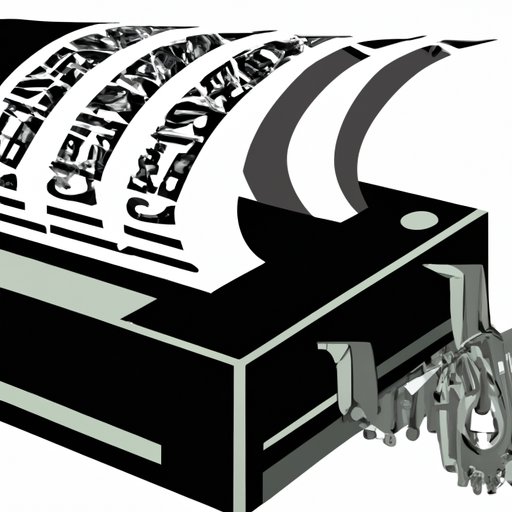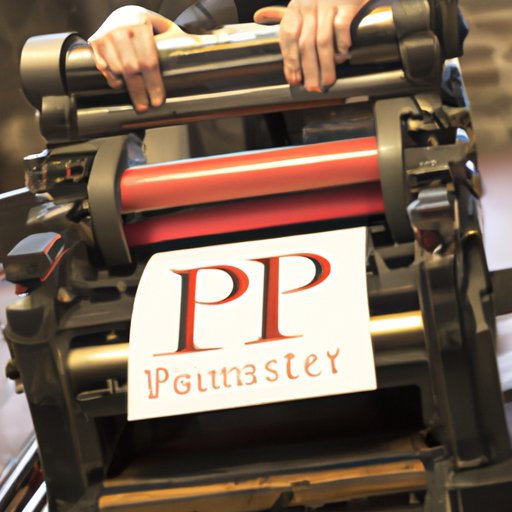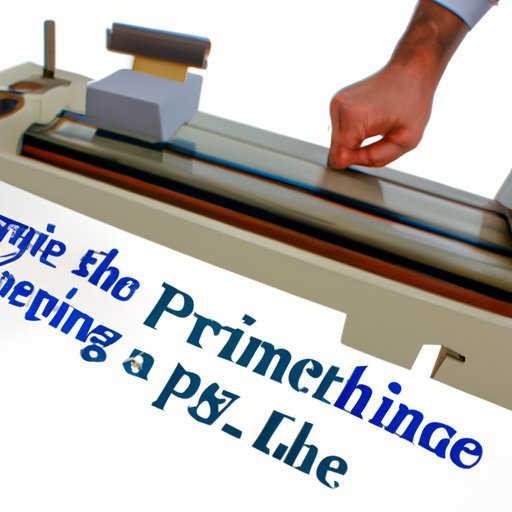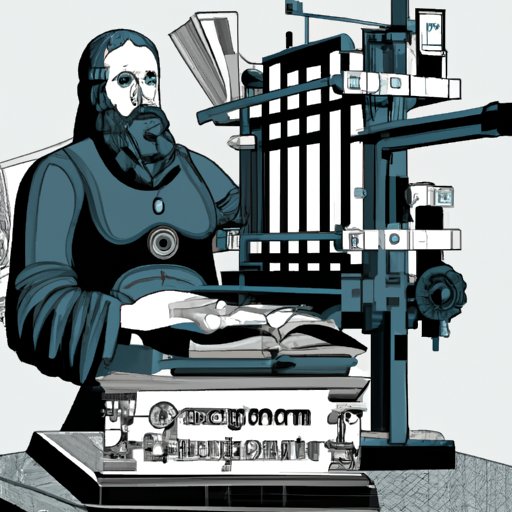Introduction
Johannes Gutenberg is widely regarded as one of the most influential inventors in history. His invention of the printing press changed the course of human history and revolutionized the way information was shared. This article will explore why Gutenberg invented the printing press and its lasting impact on Western civilization.
Exploring the Historical Context of Gutenberg’s Invention
Gutenberg’s invention of the printing press was a product of its time. The Renaissance was a period of great intellectual and cultural progress, and it laid the foundation for many of the innovations that followed. During this time, there was a growing demand for access to printed materials. People were more educated and wanted to expand their knowledge.
The emergence of a more educated society created the need for a more efficient method of printing books and other materials. Before the invention of the printing press, books were painstakingly written out by hand or printed using block printing. Both methods were slow and laborious, and they could not keep up with the increasing demand for printed materials.
Examining Gutenberg’s Innovative Approach to Printing
Gutenberg took a revolutionary approach to printing. He developed movable type, which allowed him to quickly and easily print books and other materials. Other advances in printing technology included the use of oil-based ink, a press screw, and a wooden press. All of these innovations enabled Gutenberg to produce books much faster than before.
Gutenberg’s invention of the printing press marked the beginning of the modern printing industry. His innovation made it possible to mass-produce books at a much lower cost than before, and it also allowed for the creation of other printed materials such as newspapers, magazines, and pamphlets.

Assessing the Influence of Printing on Western Civilization
The invention of the printing press had a profound impact on Western civilization. It allowed for the rapid spread of knowledge and access to information. People were able to learn about different cultures, religions, and philosophies from around the world. It also gave people the ability to spread ideas and influence public opinion.
The printing press also enabled the dissemination of new interpretations of the Bible throughout Europe. This led to the Protestant Reformation, which had a major impact on religion, politics, and culture. Without the printing press, it is unlikely that this event would have been as successful as it was.
Investigating the Impact of the Printing Press on Literacy Rates
Gutenberg’s invention of the printing press had a direct impact on literacy rates. The availability of books to people of all economic classes made it easier for them to learn how to read. As more people learned how to read, literacy rates increased dramatically.
The printing press also made books more affordable. This meant that people who could not previously afford to buy books were now able to do so. This made education more accessible to people of all backgrounds, and it helped to increase literacy rates even further.

Analyzing the Role of the Printing Press in Reforming Religion
The printing press played a key role in religious reform in Europe. By making it easier to produce and distribute books, it allowed for new interpretations of the Bible to be disseminated throughout Europe. This led to a shift in religious beliefs and practices, which ultimately resulted in the Protestant Reformation.
Gutenberg’s invention of the printing press enabled religious reformers to spread their ideas more quickly and effectively. This allowed them to reach a wider audience and shape public opinion. Without the printing press, it is unlikely that religious reform would have been as successful as it was.
Discussing the Technological Advances Enabled by Gutenberg’s Press
Gutenberg’s invention of the printing press enabled a number of technological advances. New methods for producing books and other print material were developed, making it easier and faster to produce large quantities of books. It also allowed for the mass production of books at a much lower cost.
The printing press also made it possible to produce books in multiple languages and in different formats. This allowed for the spread of knowledge and information to people all over the world. It also enabled the development of new printing techniques, such as lithography and engraving.

Evaluating the Economic Effects of the Printing Press
Gutenberg’s invention of the printing press had a significant impact on the economy. The increased demand for paper and other raw materials led to the growth of industries related to printing. This created jobs and improved the standard of living for many people.
The printing press also enabled the expansion of the publishing industry. This created opportunities for writers, artists, and other creatives to make a living from their work. It also allowed for the growth of businesses that provided printing services, such as booksellers and printing companies.
Conclusion
Johannes Gutenberg’s invention of the printing press revolutionized the way information was shared and had a profound impact on Western civilization. It allowed for the rapid spread of knowledge and access to information, enabled the growth of the printing industry and related businesses, increased literacy rates, and played a major role in religious reform. Today, we continue to benefit from Gutenberg’s invention, and its impact can still be felt in our modern lives.
(Note: Is this article not meeting your expectations? Do you have knowledge or insights to share? Unlock new opportunities and expand your reach by joining our authors team. Click Registration to join us and share your expertise with our readers.)
